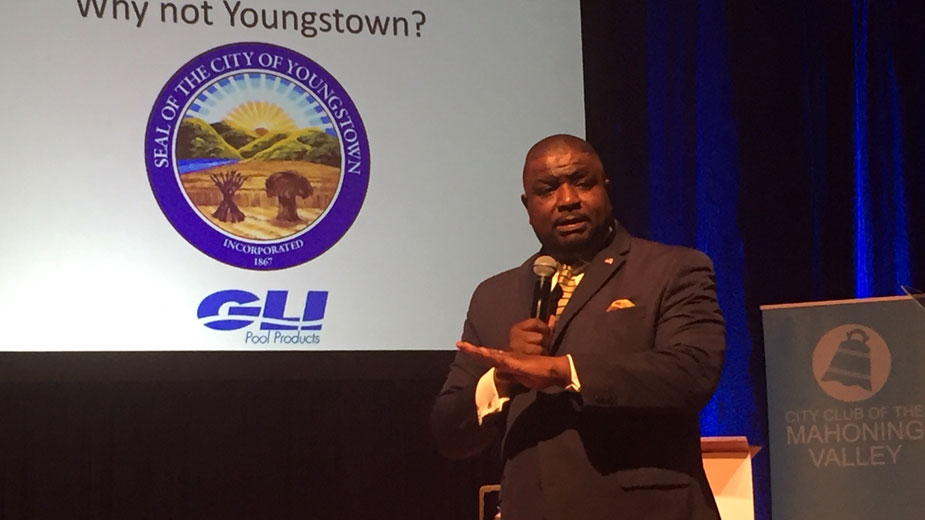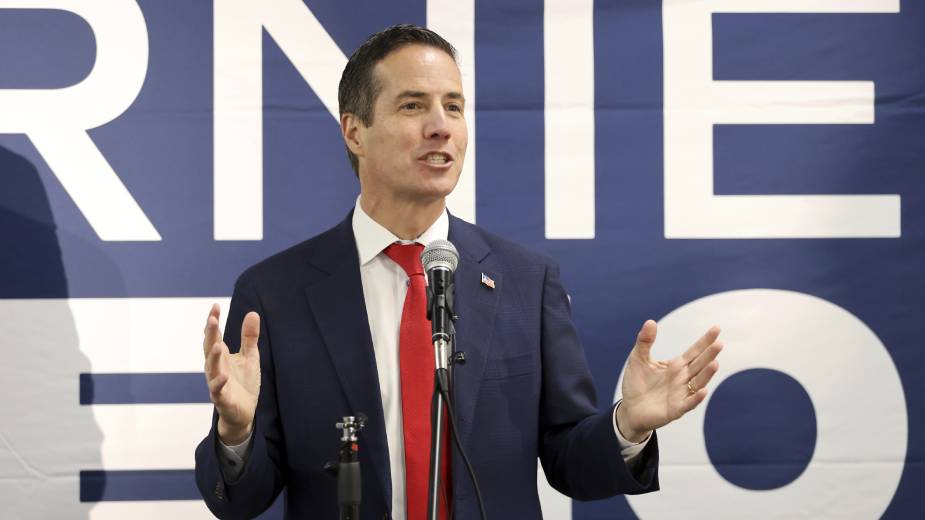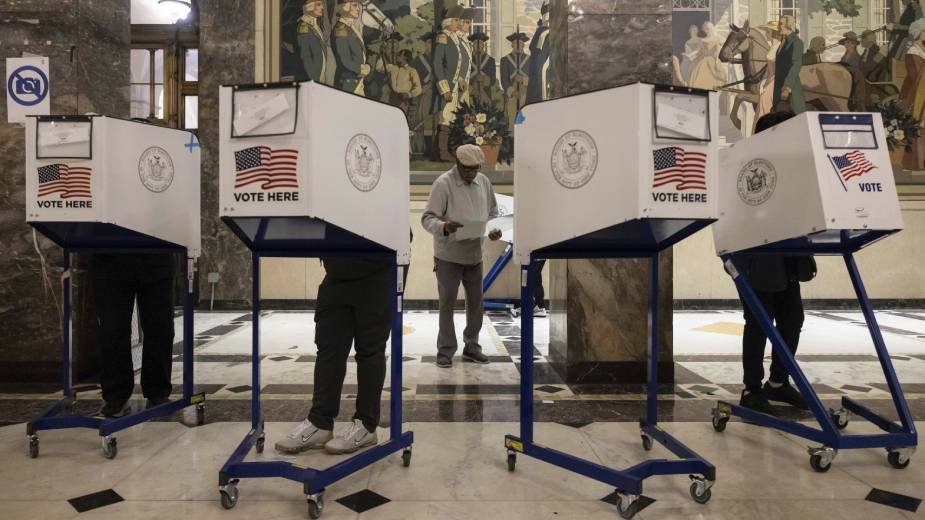Youngstown Is ‘Open for Business,’ Brown Says
YOUNGSTOWN, Ohio – Mayor Jamael Tito Brown said Thursday evening there’s just one criterion to do business in the city under his watch.
“You must be willing to improve your quality of life and the citizens of Youngstown,” Brown said before a large audience in his first state of the city address at the Ford Recital Hall in the DeYor Performing Arts Center. “Youngstown is open for business.”
Brown’s 35-minute address touched upon a wide range of topics that included education, senior care, neighborhood development, blight cleanup, crime, efforts to streamline costs in city administration – even the “Zombie Raccoon” was given a mention – and the challenges that lay ahead.
The address was delivered as part of a program sponsored by the City Club of the Mahoning Valley.
One of the keys to attracting new business is a stable political climate, Brown said. “If there’s a cloud of corruption, or the political climate is not inviting, the businesses don’t want to be involved with that problem,” he said. “Toxic environments don’t attract investors. Teamwork does.”
This teamwork helped land the $10.8 million Build grant from the U.S. Department of Transportation, which will be used for road improvements and technological upgrades around the Fifth Avenue corridor near Youngstown State University.
“It is estimated to have a $250 million economic impact over the next 10 years in this community,” he said.
Still, the mayor was not oblivious to the many difficulties that confront the city.
“The reality is that we do face tough economic times, whether it’s our flat revenue streams in the city of Youngstown, the uncertainty of Lordstown and the closing of Northside Hospital,” he said.
These uncertainties impact everyone in the Mahoning Valley, prompting the mayor to urge unity and cooperation. “Now more than ever, we need to stick together,” he said.
Yet it is the city’s resiliency and toughness that helped carry it through some of its most difficult periods, and this fortitude is likely to see it through future challenges, Brown said.
“When I took over as mayor, the city was faced with a $2.3 million deficit in 2018,” Brown said. Drastic cuts had to be made, he emphasized. Even more so, part of the remedy required “a new mindset of doing city business.”
Among Brown’s priorities is to redevelop the city’s major corridors and remediate blight.
The city of Detroit, for example, initiated successful programs to attack illegal dumping, begin streetlight upgrades and other community development efforts. The result has been significant private investment within the Michigan city.
“It’s been a game-changer,” Brown said. “We must be intent on cleaning and greening the outside areas.”
The mayor said his administration is taking an aggressive approach to identify and clean up dumpsites.
“If Detroit can clean up its front door, why not Youngstown?” he said, a recurring question throughout his speech.
More than 700 complaints filed with the city involve dumpsites blighted properties, the mayor said.
Replacing sodium street fixtures with LED street lighting is also an important improvement that Brown is pursuing. LED lighting, the mayor said, helps deter crime and improve visibility for motorists.
“We must concentrate on our main streets into our town, like Market Street, Mahoning Avenue, Belmont Avenue and South Avenue, just to name a few,” he said.
In the neighborhoods, the street department cut grass at 5,701 vacant lots last summer and 640 condemned structures were razed in 2018.
However, a collective groan rippled throughout the hall when the mayor mentioned an annual spring menace: potholes and road repair across the city.
“We strive to get better to deliver service to the community,” he said. “We completed 1,286 requests to repair potholes on a total of 494 streets throughout the city. We only have 982 streets.”
Another harsh reality the mayor pointed out was the city’s 40% poverty rate and an infant mortality rate that is among the highest in Ohio. “It remains a top concern of this administration,” he said.
The mayor and his wife, Lynette, visited Chicago in an effort to examine how that city used a First Ladies initiative to combat infant mortality. Brown also highlighted efforts in Youngstown such as the Eagle’s Nest, which focuses on providing women with a safe, stable home before and after pregnancy.
Other efforts touted included his administration’s food policy initiative, which seeks funding for a program that would bring a full-service grocer to the city in an effort to abate food deserts.
Brown also took time to celebrate major successes such as the opening of the DoubleTree Hotel, a thriving central business district and the new Youngstown Foundation Amphitheater, slated to open in June. He also praised companies such as GLI Pool Products, a company that selected Youngstown as the site for the expansion of its manufacturing operations.
The mayor then took questions from the audience.
First Ward Councilman Julius Oliver asked the mayor about what the city is doing for youth. Brown responded by highlighting initiatives such as the Taft Promise Neighborhood, while noting it’s important to encourage young people to become involved in mentoring services with organizations such as My Brothers Keeper. “It’s important to give them options,” he said.
Megan Turner asked what the city can do to promote sustainable economic development across the city.
“Our political climate has to be inviting,” Brown said. “If we could put our differences aside and we want to focus about moving the agenda of economic development for Youngstown, that’s the only way we’re going to do it.”
Pictured: Youngstown Mayor Jamael Tito Brown gives his state of the city address Thursday evening.
Copyright 2024 The Business Journal, Youngstown, Ohio.



